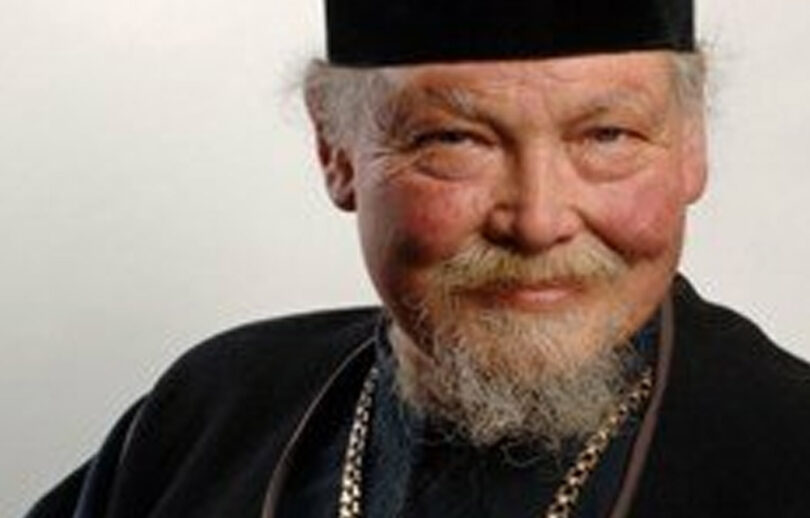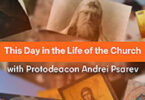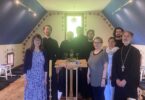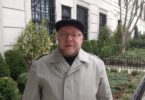Bishop Ambrose was born outside of Russia, in Vevey, Switzerland, to Prince Peter Georgievich Cantacuzène and Olga Alekseevna, née Orlova. Peter Petrovich Kantakuzen (his secular name) received a good education, mastering classical Greek and Latin. He also had a degree in law from Lausanne University. As a teenager, he stopped going to Church. However, having realized that he did not have it in himself to be a lawyer and that, without Swiss ethnic roots, he stood no chance of landing a diplomatic post, Peter returned to the Church. From 1968 to 1975, he taught French and basic law at a secondary school. The next year, Archbishop Antonii (Bartoshevich) of Geneva and Western Europe (ROCOR) ordained him a celibate deacon and priest. Although Père Pierre did not have a formal theological education, he had received much from interacting with his abba, Archbishop Antonii. In Père Pierre’s case, it was rootedness in European civilization that molded him into an open and compassionate witness for Christ.
During Archbishop Antonii’s tenure, very few candidates for ordination attended the Jordanville seminary. Several were “home-schooled,” like the future Bishop Ambrose. In 1993, the dying abba Antonii requested that Père Pierre become a bishop. It was around this time that the ROCOR German Diocese was beginning to engage in an informal conversation with representatives of the Moscow Patriarchate. This process was met with rejection from several ROCOR clergy in Western Europe. The ruling Bishop Seraphim (Doulgoff, an alumnus of St. Serge Theological Institute in Paris) tacitly supported those opposed to negotiations with the Moscow Patriarchate. The resignation and then the return of Metropolitan Vitalii in 2001 brought this crisis to a resolution. Several scandalized clergy, along with Bishop Barnabas (Prokofieff), left the ROCOR, and Bishop Ambrose became a cornerstone of the Church. At the Fourth Pan-Diaspora Council in San Francisco in May 2006, I witnessed how this smiling, delicate man with a prosthetic leg could stand up for the Church. When participants began to turn to agitated polemics, Archbishop Ambrose of Geneva and Western Europe pointed out that “[demagogy] at the Council is unacceptable. Applause at the Council must also cease. The work of the Council is a holy action, similar in some respects to a sacramental act.”
In January 2009, Archbishop Ambrose participated in the All-Russian Council in Moscow and was an elector of Metropolitan Kirill as Patriarch of Moscow and All Russia. On July 20 of the same year, Archbishop Ambrose passed away. If one needs to characterize him in one phrase, it would be that he heeded the call of duty to serve the Church. May his memory be eternal!











